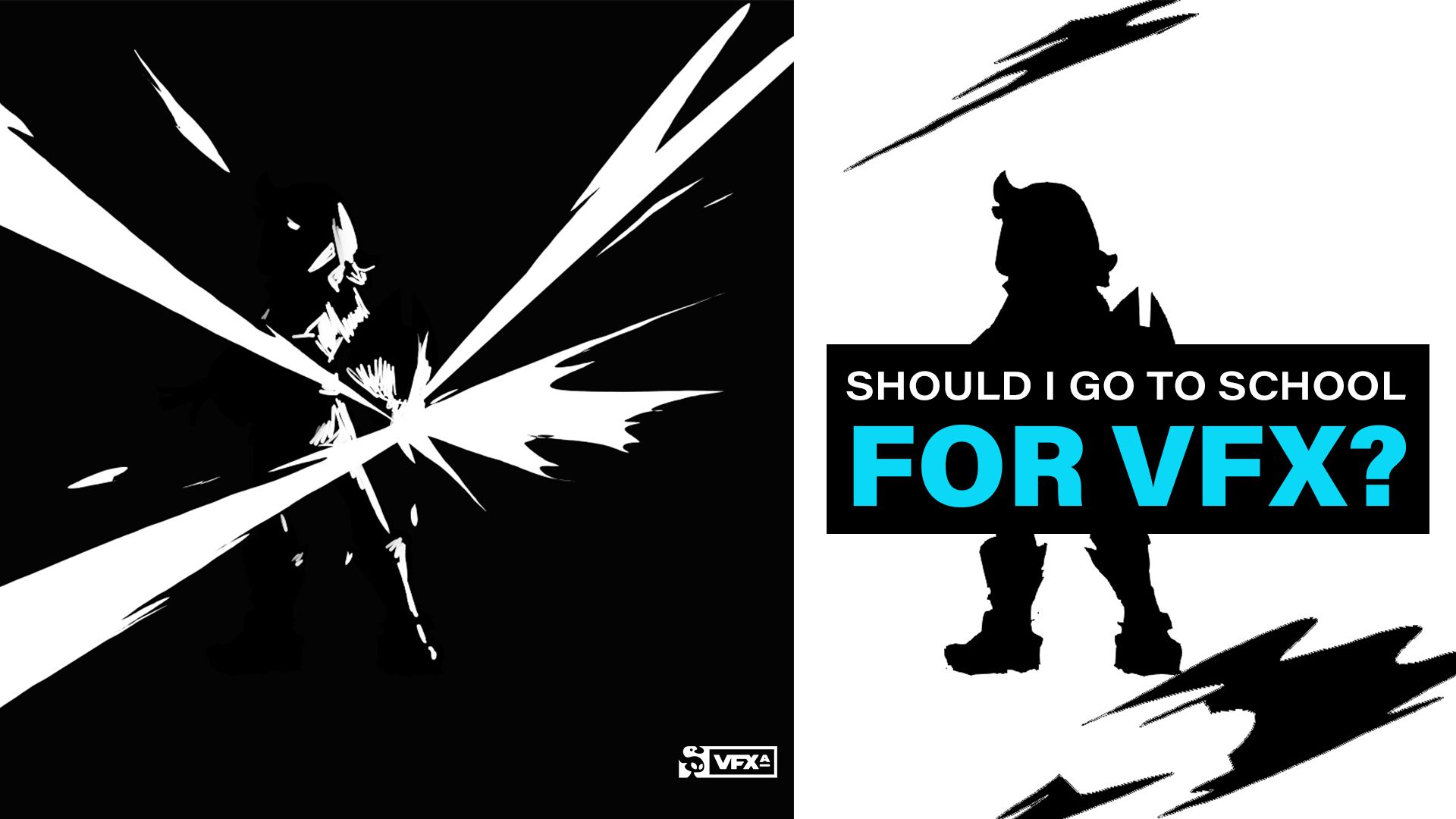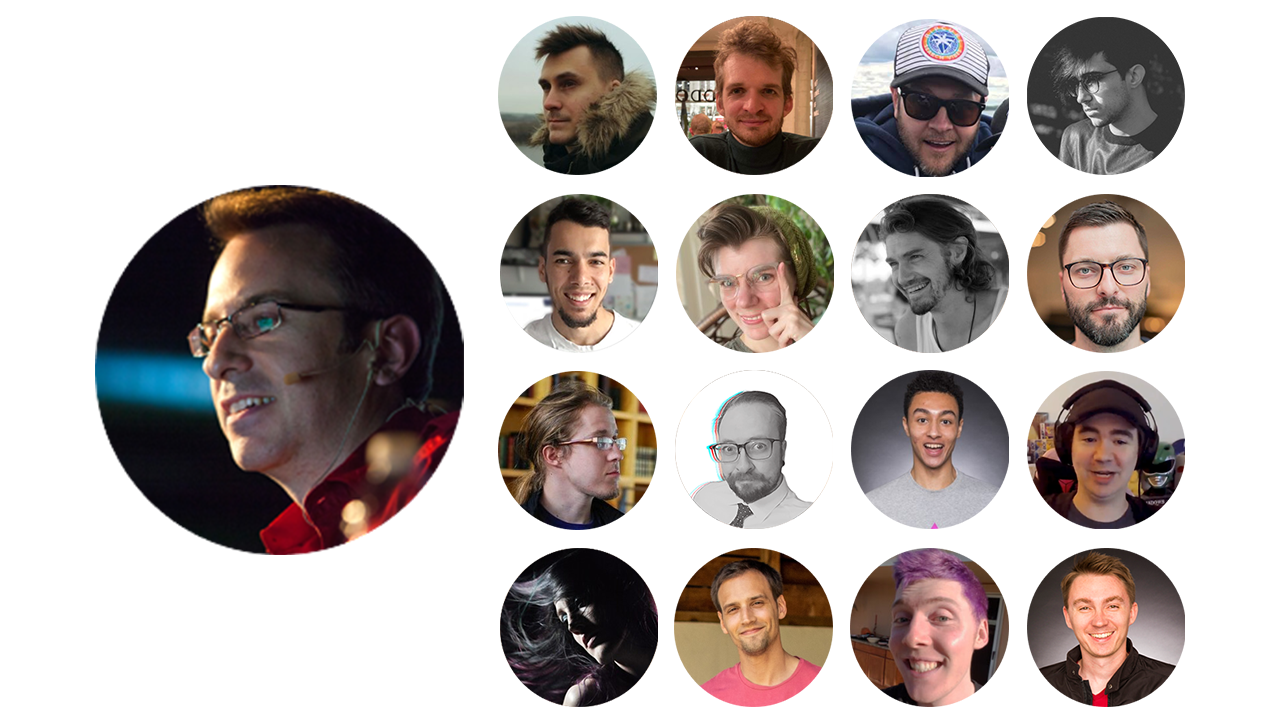Should I Go to School for VFX?
Feb 21, 2023
You don't need a degree to work in VFX. It all comes down to mentorship, networking, and opportunity.
"Where should I go to school to enter the entertainment industry?" A lot of you are wondering, and I'm going to talk with you a little bit about that today.
Schools vs Training Programs
The first thing that you need to know is that you really shouldn't just be going to a school. You want to find a training program, and some training programs happen to be called schools. But the difference between a school and a training program is massive.
Now, the word school comes from the Greek "σχολή" which essentially means leisure or free time. It's something you do if you have a lot of extra money and a lot of extra time, and you want to go learn about how the world works just for the sake of learning. That's essentially at the core and heart of what academia is. Now, that's a very beautiful thing. That's something the world definitely needs. That leads to innovation and research and all kinds of breakthroughs that have benefited humanity greatly.
I'm not saying that's bad, but at the end of the day, if you're looking for a job, if you want to go and get employed at a studio doing what you love, you do not need academia. It's not about learning just for learning sake. You need practical skills from a training program that's designed to get you hired.
So, how do you tell if the school or online program or the mentorship that you're joining up with is actually effective as a training program? Well, there are really just two things that you want to look for.
Inspiring Instructors
Number one are the mentors. Are the instructors and professors from jobs that you admire. Have they worked at studios that you want to work at? Have they done the things that you want to do? That should be number one on your list. And if that's not the case, that's a huge red flag.
At the end of the day, this is your money that you're spending on this institution, whether it's a company, a school, a public forum, whatever it is. It costs money to go and learn. Now, in some countries, a lot of the education is funded, so that may not apply, but it still costs time. You're still spending your time going to learn from these people. So you should put them through these tests.
Job Placement
The second thing that you want to ask is, are the students who are coming out of this program getting the jobs that I want to get? It's all about the job. If they're not placing students at jobs that you want to go work at, then you shouldn't go through that training program.
At VFX Apprentice, we place people every month at the jobs they want to go work at, and that is important. I don't think I would want to be in business if I wasn't placing people. I would feel bad about being in business if I didn't actually place people at the jobs that they want to go work at.
What makes a successful training program?
Now, what is the formula that goes into making one of these successful training programs? I think it really comes down to three things. And the nice thing is, is that if you don't have the money to go to any program at all, you can build a lot of these things on your own for free and cobble together the things that you want based on what resources are available online.
The first aspect that you want to think about is mentorship. If we're working with a cannon that's trying to fire a cannonball and your that cannonball and your target is the place you want to go work, it's the studio you want to get into, whether it's a games, television or film, whatever. The thing about mentorship is that's going to turn the can side to side. We say that mentors guide us, right? And I think that guidance of like, no, go a little bit more to the side or focus more on that or your portfolio really lacks these things, or your skill set needs that and that's going to be a lateral movement.
Then we've got networking. Now, networking is not just the people in your network, but it's also your own skills to network. It's your ability to get out of your shell and contact someone via email, ask them to be your mentor, ask them to give you feedback on your reel. Ask them what it's like to work where they work, and what you would need to do to get there. So the ability to network, to reach out, to have people that you went to the training program with that go on to work at different places to give you those opportunities for new jobs. This is going to help you climb that ladder. So this is going to be the vertical movement of the cannon. How high up is the cannon aimed? And that's obviously going to change the trajectory of the cannonball to allow it to go much further.
And finally, you can bet the thing that you need to worry about the most is the gunpowder in that cannon, which really is in real life how much work and how much time are you putting into this. That is the most critical factor. If you're not putting time into studying and practicing and working your tail off to get better at what you do, that cannonball isn't going to go anywhere. It doesn't matter how perfectly tuned it is. If it doesn't actually have the power to push it out far enough to go to its destination, you're not going to make it.
So this is a big thing that I want to make very clear. It is not the job of a training program to make your life easier. It's not about the ease. A good training program is just the right assembly of these three ingredients. A place that gives you decent mentorship, a place that gives you decent networking, and a place that gives you the opportunity to practice.

Every now and then, even a terrible school, or a terrible training program places people at awesome jobs because those people work their tails off. They have so much gunpowder going for them that it doesn't matter where they would have gone to school, they still would have hit their destination.
Finding what works for you.
So at the end of the day, what matters most is you get the work done. That really comes down to you figuring out what works for you personally. And this is something that I can't really say for you. You need to figure out, do I enjoy working in a group of people with lots of others around me? Am I a very social kind of person that gets energy from that? Do I like to work alone? Do I like to work from home? Do I prefer an online program? Is that going to be a better fit for me?
Maybe you need a lot of mentorship. Maybe you don't need as much mentorship as somebody else because you're more self-driven. Or maybe you just know how to find mentors proactively versus someone else who kind of needs a faculty member assigned to them because they're a bit shy and they need to know that I'm going to have someone there that I can rely on.
Whatever your questions are about your own path, I'm here to help. You can go ahead and get a hold of me over on the contact page over at our website. I'm always around. I'm always available. This is the thing that I love doing. It may take me a while to get back to you, but please feel free to reach out and ask if VFX Apprentice might be right for you.
If not, and you want to learn some other kind of digital art, I'd be happy to point you in a good direction. There's lots of amazing sites out there that teach other forms of digital art that I'd be more than happy to talk about with you.
Your journey's personal. What matters most is the hard work you do. No matter what you end up doing, I'm excited to see you on your journey.
Start Your VFX Apprenticeship
Begin your journey towards mastering FX for games and animation. Join VFX-A All Access and discover cutting-edge 2D, 3D, and real-time FX training.








